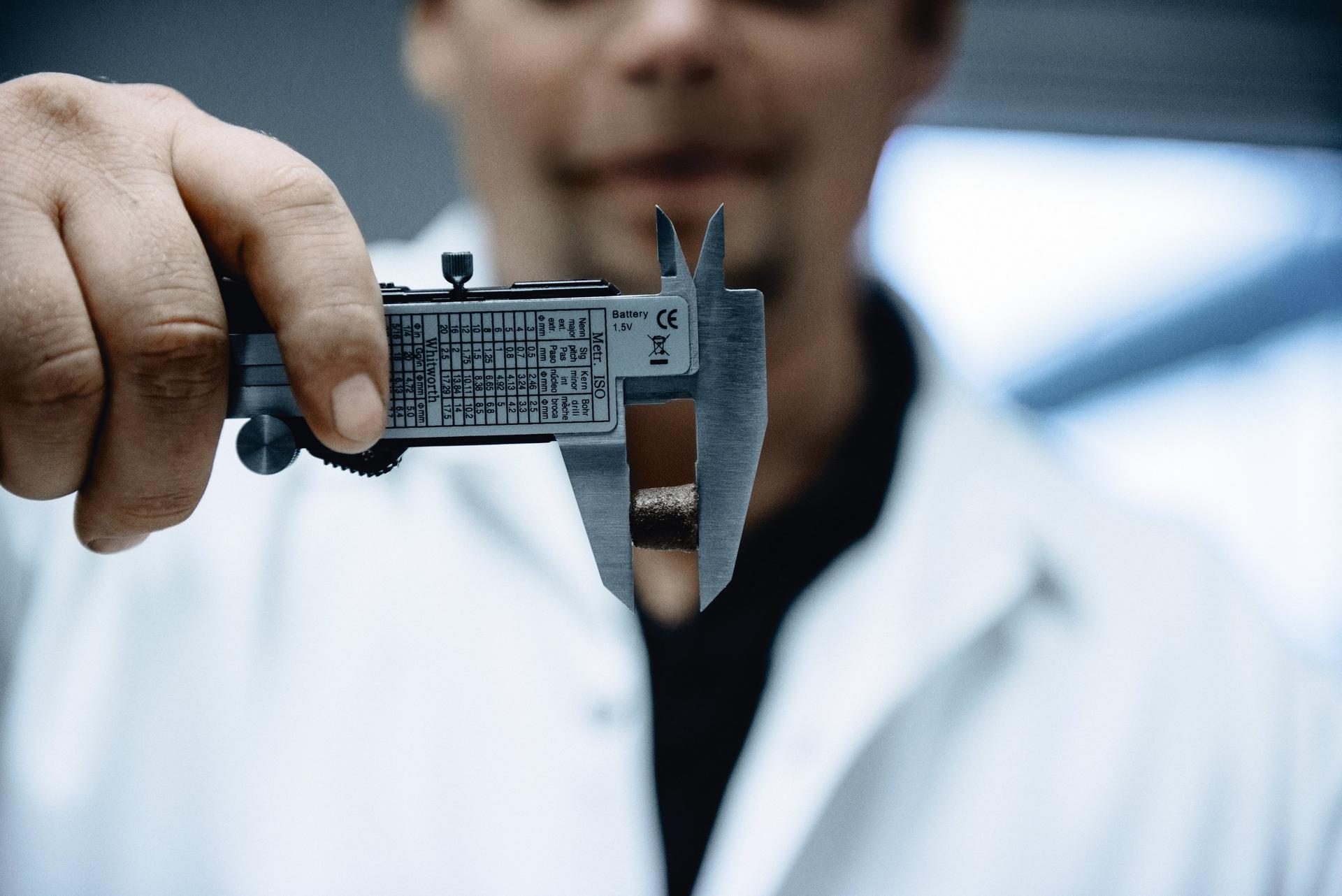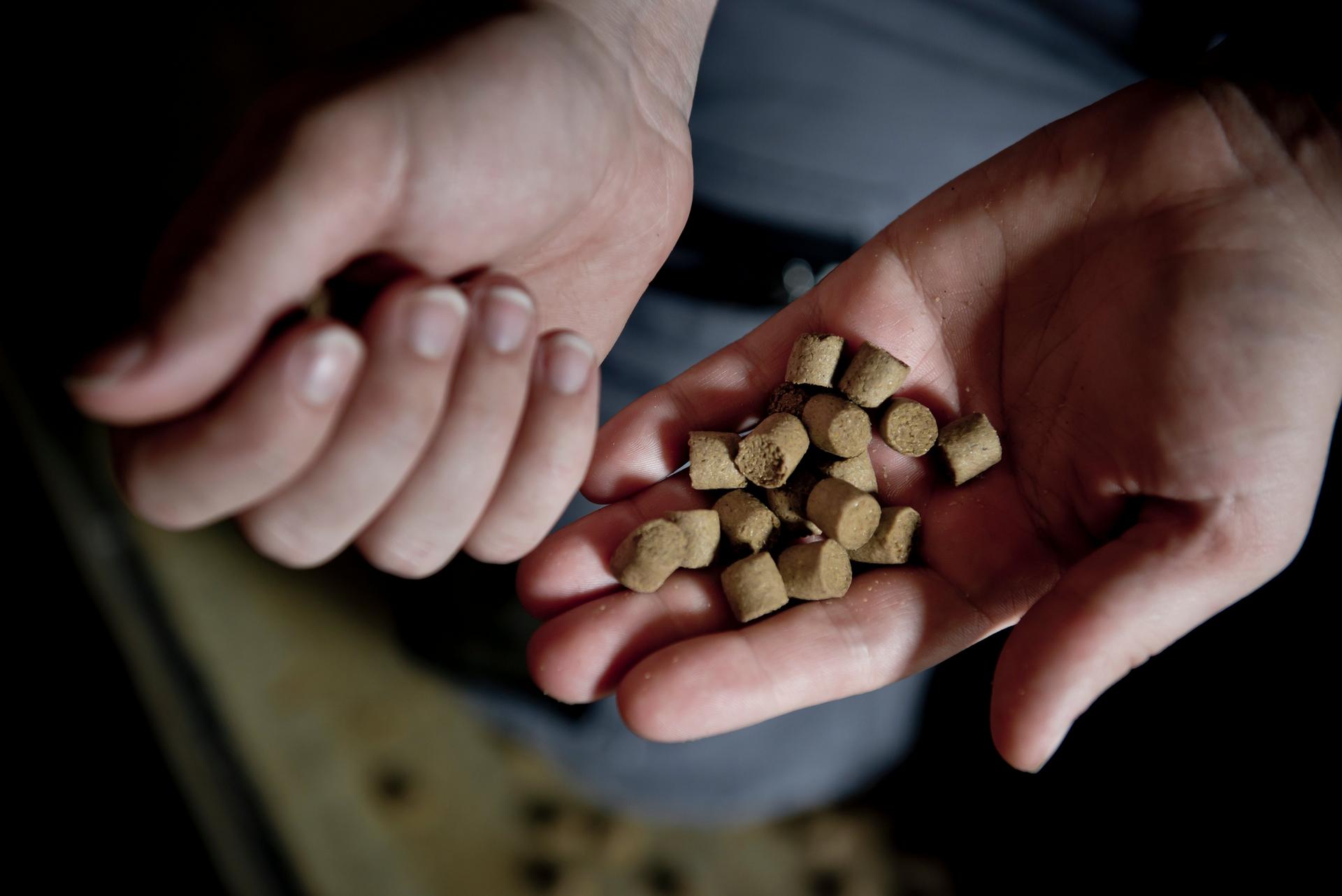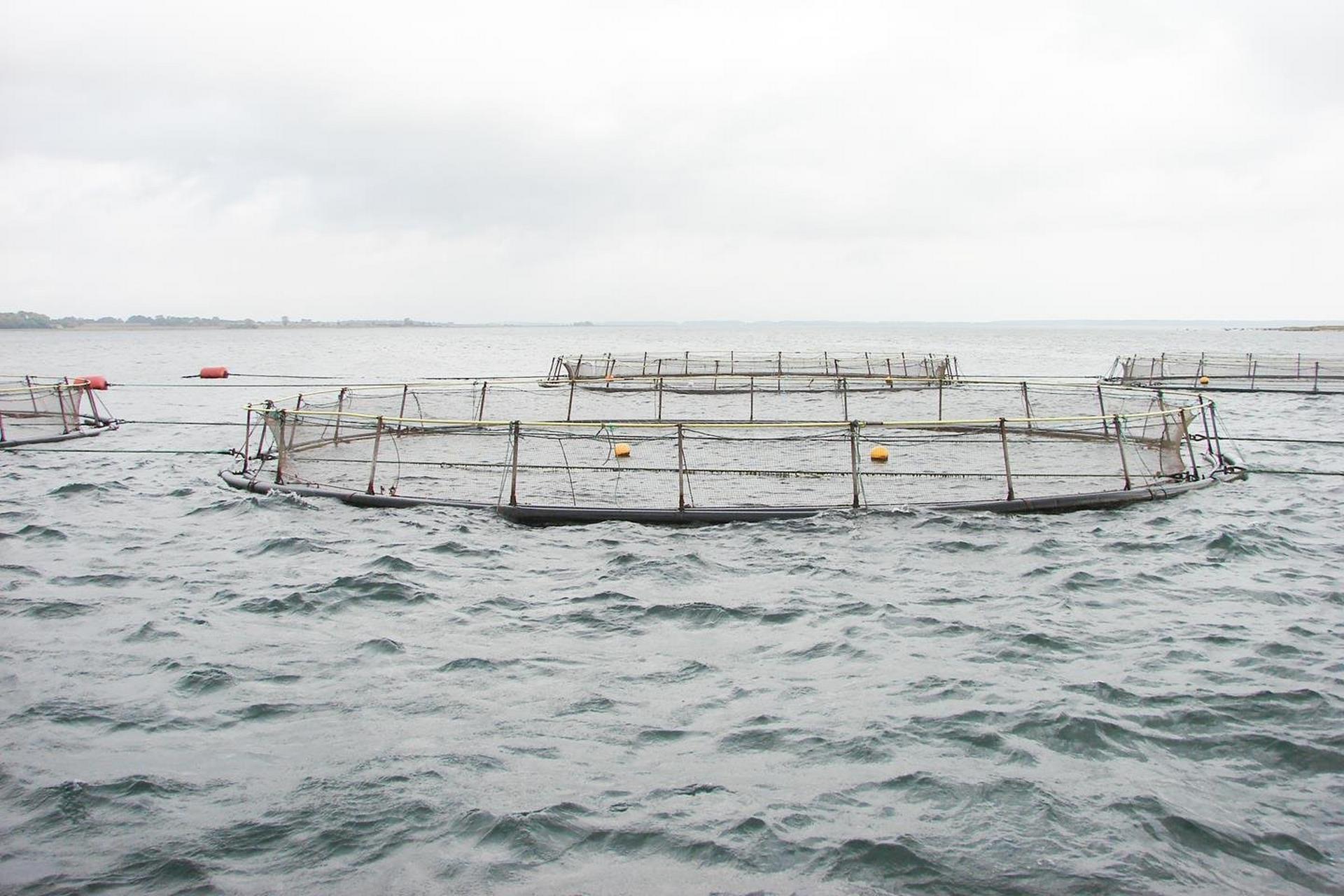- Ernæring
- Fisk og skaldyr
Bedre foder resulterer i bedre mad til os alle
Hos BioMar forstår vi, at rejsen til enestående fisk og rejer begynder længe før, den når bordet, og den starter med det foder, der giver næring til fisk og rejer.
Nijvis serves as an example of how companies in niche industries, such as eel farming, can integrate sustainable practices while achieving business success. They are setting a new standard in the aquaculture industry, as they continue to expand and lead by example.
Nijvis is a family-owned business with over three decades of experience and a diverse range of companies under its umbrella. The eel industry has faced several significant challenges in recent years, particularly the implementation of eel catch regulations in 2007 and the temporary ban on eel sales in Dutch supermarkets in 2010. These measures were driven by growing concerns about sustainability and the endangered status of eel populations. In response, Nijvis acknowledged the urgent need for reorganization and committed to adopting more sustainable practices, despite the industry’s traditional focus on production rather than environmental impact.

Another major cause of change has been the introduction of the Corporate Sustainability Reporting Directive (CSRD), which has further encouraged the company’s sustainability agenda. Although Nijvis is currently unable to meet the ASC certification standards—due to their reliance on wild-sourced eel—they follow recognized sustainable eel standards that prioritize transparency, traceability, and ethical farming practices.
Sustainability in action
Energy efficiency: Nijvis prioritizes energy efficiency across all its production facilities by adopting energy-efficient technologies. Through equipment upgrades, the integration of renewable energy sources, and process optimization, the company has significantly reduced its energy consumption. Key components of their sustainability efforts include solar panels at the farm and smokery, as well as the use of heat pumps. Additionally, Nijvis is committed to reducing its gas usage and further decreasing electricity consumption.
The company is also continuously improving its operations within regulatory limits. Notably, Nijvis has contributed to the development of an innovative machine capable of humanely euthanizing fish in just 0.1 seconds, ensuring high standards of animal welfare. Furthermore, their Recirculating Aquaculture System (RAS) plays a crucial role in minimizing water consumption.
Waste management: A key focus of Nijvis’s strategy is reducing waste and improving recycling practices in the smokery. The company has implemented several strategies to minimize production waste and increase the reuse of materials. For example, they have adopted circular economic principles, where end-of-life products are reprocessed and transformed into new resources. By promoting efficiency, extending product lifespans, and reducing waste, Nijvis is actively minimizing its environmental impact. The company has taken further steps to reduce waste by exploring innovative uses for eel byproducts, including repurposing eel feces as fertilizer and implementing systems to separate and reuse water.

Advanced wastewater treatment: At their facility in the Netherlands, Nijvis has invested in a state-of-the-art effluent treatment systems. These systems recycle water and convert waste into fertilizer, reducing environmental impact and water usage.
Fish welfare
Furthermore, Nijvis has developed a unique, fish-friendly airlift system for transporting eels. Instead of using nets or human handling—which can stress the delicate fish, they use a water-based airlift method that gently moves eels during grading and transport.
Ethical sourcing: The company’s emphasis on full traceability ensures that the fish they catch are sourced responsibly and not through illegal practices, addressing concerns in the wider eel industry. Committed to sustainability and ethics, they source glass eels and feed from responsible suppliers who maintain transparent and ethical supply chains. Their operations, from the catch of glass eels to the end product (smoked eel), showcase a fully integrated and traceable process.
Since 2022, the company has exclusively sourced glass eels from SEG-certified fishermen. This certification ensures that each eel can be traced back to its origin, supports sustainable fishing practices, and guarantees a survival rate of over 95% during catch and transport—a significant improvement over previous rates.
This approach not only enhances transparency but also aligns with broader conservation efforts, as 60% of all glass eels are reserved for restocking European waters where eel populations have declined.
Social impact
Nijvis is committed to improving communities and supporting employees through: Upholding high labor rights standards, ensuring fair wages, safe working conditions across its global operations. Investing in employee health and growth through training, career development, and comprehensive health benefits.
Looking forward, Nijvis is focused on continuing to improve their sustainable practices. The company's future goals include further reducing waste, optimizing energy use, and continuing to drive innovation in green technologies. The key to their future success lies in balancing profitability with environmental responsibility. The company has set ambitious goals to reduce its greenhouse gas emissions by investing in cleaner technologies, optimizing logistics, and embracing low-carbon alternatives.
Despite the challenges of convincing customers to pay more for better-quality and sustainable products, Nijvis believes that adopting sustainability is no longer optional. As the demand for responsible sourcing grows, companies that fail to meet sustainability standards risk being left behind.
Resultater (50)
?w=1920&%24withDefaultImage%24=&fmt=auto)
Hos BioMar forstår vi, at rejsen til enestående fisk og rejer begynder længe før, den når bordet, og den starter med det foder, der giver næring til fisk og rejer.

The BioMar feed factory in Denmark in the finals for the German Sustainability Award 2025. An independent expert panel has acknowledged BioMar A/S, Denmark, for its efforts as a frontrunner in the development of sustainable aquaculture feed solutions and voted BioMar to the final of the 18th German Sustainability Award

Fisk og skaldyr er meget tilpasningsdygtige og har brug for omkring 40 essentielle næringsstoffer, som kan komme fra forskellige råmaterialer, herunder marine ingredienser, animalske produkter, korn og nye kilder. Denne tilpasningsevne er afgørende for branchens vækst og vil give mulighed for forskellige foderformuleringer.

I samarbejde med Agronutris udvikler vi den næste generation af mel af sorte soldaterfluer, der er specielt designet til akvakulturindustriens behov.

Fiskeopdrættere kan opnå bedre resultater ved at bruge mindre foder


I et nyligt ørred foderforsøg med yngel beviste Inicio Plus endnu en gang sin styrke ved at opnå hurtigere vækst og mere ensartet yngel end konkurrerende startfoder. Den bedste visuelle vandkvalitet blev observeret med BioMar-foderet, hvilket afspejler dets positive indvirkning ud over vækstpræstationen.

I dag har forbindelsen mellem det, vi spiser, og hvordan det påvirker vores helbred, aldrig været tydeligere. Når det drejer sig om fisk og skaldyr, er denne forbindelse endnu mere betydningsfuld. Det er ikke bare »vi er, hvad vi spiser« - men »vi er, hvad vi spiser, spiser.« Opdrættede fisks og rejers kost har direkte indflydelse på deres næringsværdi, hvilket gør kvaliteten af fiskefoderet til en afgørende faktor for at sikre, at de fisk og skaldyr, vi spiser, er nærende, sunde og produceret på en ansvarlig måde.

Hvad skal der til, for at fiskebranchen kan blive endnu mere bæredygtig og stå stærkere i fremtiden?
?w=1920&%24withDefaultImage%24=&fmt=auto)
Guar, or Cyamopsis tetragonoloba, might not sound glamorous, but it powers a surprising range of industries. From your pantry to petroleum, and even into fish feed, this underappreciated crop is quietly shaping the world around us.

BioMar baner vejen mod blå mad og grønne løsninger (Blue Food, Green Solutions) ved at være guldsponsor for AQUA 2024-konferencen.

In fish farming, large fluctuations in the oxygen content of water have a negative impact on the well-being of the fish and consequently on its growth. High water temperatures or rich vegetation in the water are important alarming factors to observe, especially in summer periods.